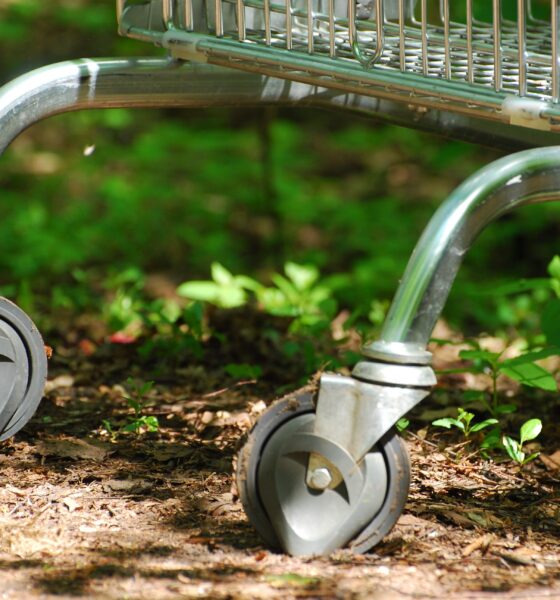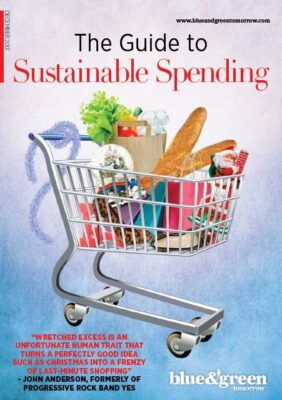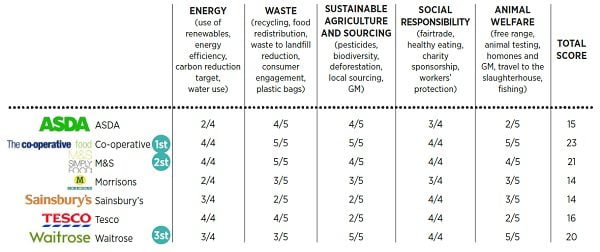

Economy
How Britain’s biggest supermarkets fare on sustainability
Over the past few years, many consumers have begun to feel a sense of urgency in the need to change their behaviour. This comes from their desire to do their bit to help tackle such as resource scarcity, climate change, sustainable farming and deforestation.
This article originally appeared in Blue & Green Tomorrow’s Guide to Sustainable Spending 2013.
More and more people prefer to spend a little bit more in order to buy Fairtrade or organic products. In 2012, the Fairtrade Foundation reported a 19% sales increase in Fairtrade products. Organic products have also experienced good performances in 2013, according to the Soil Association. But this doesn’t just mean that farmers or smaller companies selling ethical products have seen their sales going up.
In fact, mainstream retailers have started to pay more attention to the way their products are sourced, processed, sold and wasted. Figures from the Soil Association related to organic goods show that supermarkets play an important role in the organic food sector.
After researching the sustainability policies of seven major supermarket chains – Co-operative Food, Marks & Spencer, Asda, Morrisons, Sainsbury’s, Tesco and Waitrose – what is undoubtedly positive is that all mention the most crucial issues.
Meanwhile, some deserve special credit because of unusual initiatives, aimed to restore the natural environment, tackle food waste or promote green energy in stores.
We have outlined five categories used measure the efforts made by the retailer sector on sustainability: energy efficiency and use, waste management, sustainable agriculture and sourcing, social responsibility and animal welfare.
Energy use looks at the way in which the retailer is managing its carbon reduction targets and its efforts to save water and energy through energy efficiency measures in shops and across the supply chain, as well as investment in renewable energy to power the stores.
The Co-operative, Tesco and M&S scored the highest marks in this category, thanks to their clear commitment to addressing climate change and cutting their carbon emissions.
Waste management is another important pillar for M&S and Co-op – the only ones to get a full score for this category. Among the most important criteria to assess the retailers’ policies were recycling, plastic bag policies, food redistribution, reduction of waste to landfill and customer engagement to reduce waste at the consumption stage.
Food waste in particular is quite a serious issue, as recently revealed by the Waste and Resources Action Programme (Wrap). Despite a small improvement compare to the past, British families are still throwing away 4.2m tonnes of food every year. In order to reduce the amount wasted, retailers have been asked to do their bit.
All seven brands have a programme to redistribute unsold food to people in need or to reinsert it into the production process again, by using it to produce energy through anaerobic digestion – this is what Waitrose does – or animal feed.
Some of the big brands, however, are not doing enough to reduce the use of plastic bags – one of the most common causes of marine pollution – or to raise awareness among customers on how to avoid food waste, through clear information and labels.
M&S is the only retailer to have introduced a charge on plastic bags, with the profits derived from this policy given to charity.
Co-operative and Waitrose lead the way when it comes to sustainable agriculture and sourcing with big emphasis placed on sustainable products and attention to the natural environment.
Waitrose collaborates with the Woodland Trust to plant trees to absorb carbon from its deliveries and works with its farmers to ensure they manage the wildlife habitat and the soil responsibly. Co-operative also asks its suppliers to protect the UK’s wild species that are threatened by intensive agriculture, such as bees and farm birds. All suppliers have started to address the challenges posed by the massive use of palm oil, which is leading deforestation in Asia and Africa, and all are signatories to the Roundtable for Sustainable Palm Oil (RSPO).
Co-operative, M&S and Waitrose also have clear and exhaustive commitments to animal welfare, with focus on free range and hormone-free policies, responsible fishing and a ban on animal testing for their branded products.
The retailers also show an awareness of social responsibility: the availability of Fairtrade products, workers’ protection and a focus on healthy eating. Waitrose deserves special mention, as its employees are not just workers but partners who democratically own the business, as members of the John Lewis Partnership.
Despite an array of positive policies, there is a large margin for improvement for each retailer. It should give us hope to know that some of the places where we usually shop are aware of crucial issues affecting the environment and the society.
It not only means that we, as citizens and consumers, have the power to push for positive changes, but also mean that the businesses we buy from know they have this power, too. It is a circle where everyone demands and obtains better practices, to preserve and improve the way the world is run.
 Further reading:
Further reading:
Tesco to put ‘ugly’ fruit and veg on special offer to cut waste
Sainsbury’s boosts sustainability credentials with ‘triple zero’ stores
Fair Tuesday: alternative to Black Friday and Cyber Monday encourages sustainable spending


 Environment12 months ago
Environment12 months agoAre Polymer Banknotes: an Eco-Friendly Trend or a Groundswell?

 Features11 months ago
Features11 months agoEco-Friendly Cryptocurrencies: Sustainable Investment Choices

 Features12 months ago
Features12 months agoEco-Friendly Crypto Traders Must Find the Right Exchange

 Energy11 months ago
Energy11 months agoThe Growing Role of Solar Panels in Ireland’s Energy Future

 Further reading:
Further reading:




























